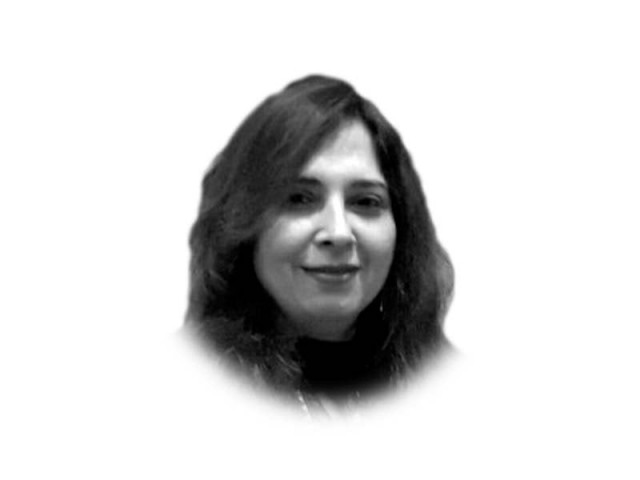World Cancer Day — making a friend out of enemy
The prevalence rate of breast cancer in Pakistan is highest among Asian countries

The writer is a columnist based in Lahore and can be reached at durdananajam1@gmail.com
Annually hundreds and thousands of people die from multiple types of cancers, but the good news is that science has been on our side. If the cells multiply to spark revenge for the inadvertent intervention we may have done to disturb the natural composition of the body, science helps us to put up a fence to limit the attack and its ferocity. However, to have a winning hand and to defeat the disease, a person must follow the pattern. From precaution, to cure, and to follow-up — each step is vital to keep life safe and protected from another spell of the disease.
Let us understand cancer. How does it invade? What takes it to foster? How can it be turned from being an enemy to a friend? Since there are many types of cancers, we shall limit this space to pour thought only on breast cancer. Such is the awe of the disease that the entire month of October has been dedicated for the observance of a disease that has the potential to kill 2.1 million women each year according to the World Health Organization (WHO). In 2018, as many as 627,000 women died from breast cancer that makes 15% of all cancer deaths among women.
Cancer in all its types and manifestation is a situation when cells grow uncontrollably and spread. Any part of the body can become victim of this disorder. Cancers can be avoided or made less harmful by adopting preventive measures and carrying out timely diagnosis. Early detection of cancer is the key to not just add more years to the life, but to also put back quality. Surgery, radiation and chemotherapy have taken the wind out of the cancer sail, making the journey to the battle much easier and less dramatic.
Usually cancer in breast is detected through a lump that builds from a disorderly division of cells in breast tissues. In many patients it takes many years before the lump becomes either visible or the breast show any sign of changes. That makes screening an important step for the early detection of breast cancer.
Two types of screening are done: one through mammography — a low-energy X-rays to identify abnormalities in the breast; two, Clinical Breast Exam, in which a trained health professional examines both breasts. The former is more popular in high-resource settings while the latter in low-resource areas.
Generally, the symptoms of breast cancer may range from swelling, thickening and redness of skin, discharge from nipples or their retraction and breast pain or heaviness. Any change that persists should pass through a physician’s eye to find out the nature of the new condition. Most of the lumps turn out benign; while many could be cancerous and well into an advanced stage.
Women over 40 are advised to get their breasts screened annually. In Pakistan many factors prevent women from getting them examined. In rural areas it is unawareness that takes the toll. In urban localities it is the combination of both lack of awareness and resistance to make healthy choices that push women into the danger zone. Physical inactivity, diet high in fat and low on calcium, alcohol consumption, tobacco use, environmental chemical and pollutants and night shift works are some of the determinants that could make women vulnerable to attract breast cancer.
The prevalence rate of breast cancer in Pakistan is highest among Asian countries. According to Dr Ayesha Isani Majeed, the In-charge of Federal Breast Cancer Screening Centre at Pakistan Institute of Medical Sciences, one in every nine women in Pakistan has breast cancer. The Pinkribbon.org.pk claims that approximately 40,000 women die from breast cancer annually in Pakistan.
Notwithstanding gaps in healthcare infrastructure that impedes access to inexpensive, quality and timely treatment, psychological determinants also contribute to the delayed presentation of the disease. Expected to push boundaries, women in their role as a mother and a wife feel obligated to forsake their rights to early diagnosis if the opportunity cost of spending time in treatment is much higher to the one spent with children and husband. At a different level, women have also been found to preferring spiritual rather than medical advice as a frontline action. Similarly, for many the inflationary cost of treatment is a barrier to the timely diagnosis and treatment.
Various studies have shown that women in Pakistan are usually diagnosed with breast cancer at its second stage, which means prolonged treatment with more cost and pain involved. In rural areas where women are faced with paucity of knowledge, independence and self-confidence, the diagnosis usually coincides with the terminal stage of the disease.
There is already a lot at stakes for Pakistan when it comes to healthcare management, and being part of countries suspected of having a large population of women with breast cancer also makes us one of those failing on gender parity. The government may have to step in not only to provide adequate resources for treatment and create awareness mechanisms for the early detection of breast cancer, but also to make early scanning of breasts compulsory among women over 40 years, maybe through statuary intervention.
Breast cancer, like many cancers, is curable only if it is detected at an early stage and is combated with the right resources. The choice is our to make!
Published in The Express Tribune, February 6th, 2020.
Like Opinion & Editorial on Facebook, follow @ETOpEd on Twitter to receive all updates on all our daily pieces.












COMMENTS
Comments are moderated and generally will be posted if they are on-topic and not abusive.
For more information, please see our Comments FAQ